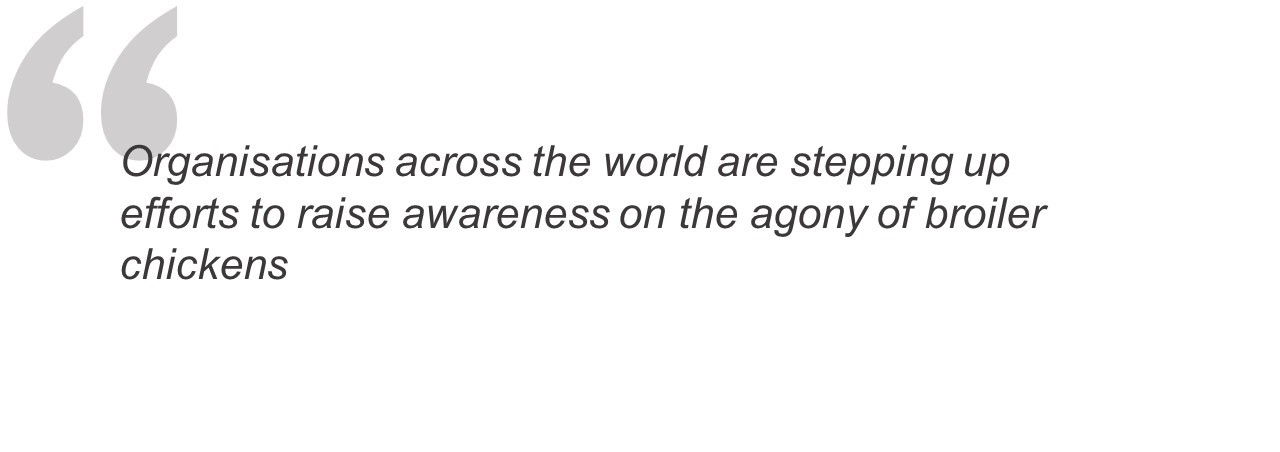



European Parliament: what are the public health, environmental impacts of intensive broiler production?
EU - The European Parliament urges the European Commission to address animal welfare, environmental and public health impacts of intensive broiler farmingOn World Animal Day the European Parliament Plenary meeting unanimously called on the European Commission to fully enforce the Broiler Directive and resolve the animal welfare, environmental and health threats resulting from industrial broiler chicken farming. Commissioner Bienkowska committed to develop more animal welfare indicators and promote funding to higher welfare chicken farming systems through the CAP subsidies. She also announced that the second EU reference centre on animal welfare would be dedicated to poultry welfare. MEPs criticised the Commission’s proposals during the debate, indicating they didn’t go far enough. As a next step MEPs will work on a motion for a resolution including proposals towards more sustainable, higher animal welfare broiler chicken farming.
Early 2018, the European Commission published a much delayed and disappointing report to the
Parliament and the Council acknowledging the absence welfare impact resulting from the so-called Broiler Directive (2007/43/EC). The Broiler Directive lays down minimum standards for the protection of chickens kept for meat production. Yet, the Commission’s recent implementation report failed to demonstrate any significant animal welfare improvements, and showed that enforcement is at best inconsistent across Member States.
The harsh reality for broiler chickens means they are reared by the tens of thousands in barren sheds, on wet litter, and without any possibility of expressing natural behaviours such as perching, pecking enrichment substrates, or enjoying natural light.
The Directive does not address the negative consequences on animal welfare that directly derive from selection for fast growth, a problem that has been stressed by the European Food Safety Authority (EFSA) as well as by a Commission report.

What emerged from today’s Parliament debate is that current industrial broiler farming is not only of concern for animal health and welfare, but poses also severe risks for public health as it contributes to the antimicrobial resistance emergency. The poor and cramped living conditions often call for mass treatments with antibiotics to prevent or contain disease outbreaks, which threatens public health. Several strains of poultry pathogens capable of causing serious illness in humans are now showing resistance to antibiotics used in poultry production, as is the case for Campylobacter spp. and Salmonella spp.
MEPs also endorsed a recent Greenpeace report showing the massive impact of industrial poultry
production (ammonia) on pollution of air, soil and water.
This initiative comes at a time when animal advocacy organisations across the world are stepping up efforts to raise awareness on the agony of broiler chickens and engage corporate leaders to take their responsibilities. Several global players such as Marks & Spencer, have already made ambitious
commitments to impose higher broiler welfare on their supply chains.
Despite the vivid MEP criticism faced during the debate for lacking vigor in pursuing what is now perceived as extremely urgent change, Commissioner Bienkowska made three important commitments, reflecting Eurogroup for Animals’ earlier recommendations. She expressed her sympathy for the topic and agreed to develop more animal welfare indicators while incentivising higher welfare chicken farming systems through CAP subsidies. She also announced that the second EU reference centre on animal welfare would be dedicated to poultry welfare.
The Motion for a Resolution, following an earlier oral question on which this debate took place, will be presented and voted in Plenary at the end of October 2018.
As reported by Eurogroup for Animals











